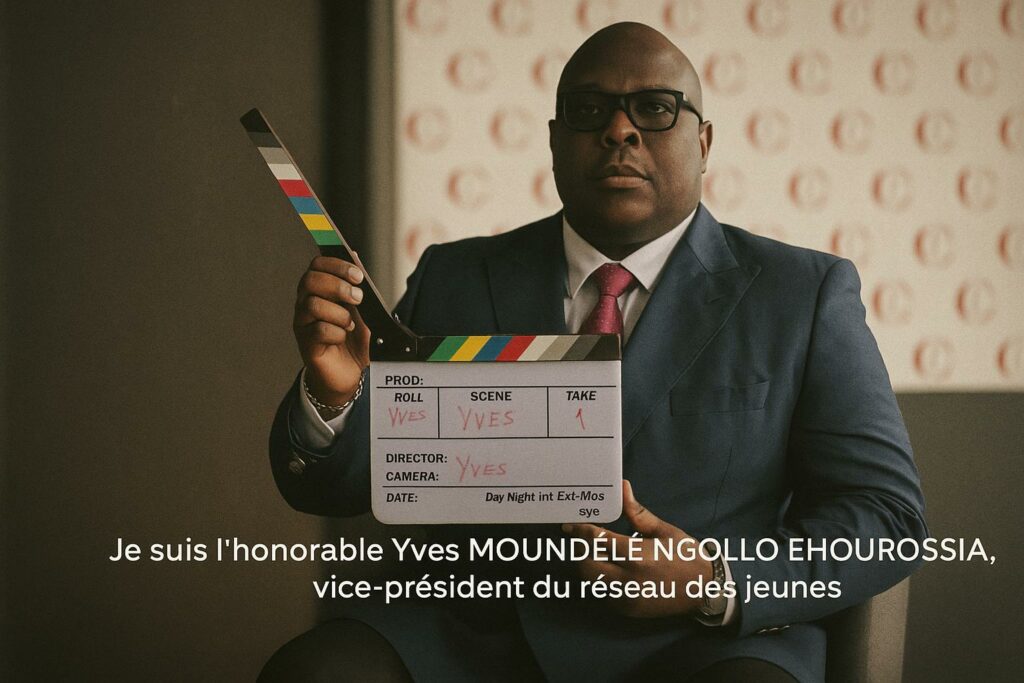Alexandria’s Diplomatic Classroom as Soft Power Incubator
The marble arcades of the University Senghor in Alexandria, Egypt, have long been regarded as a discreet laboratory for the Organisation internationale de la Francophonie. During the fourth edition of its Diplomatic Class, held from mid-June to early July, thirty-six young officials immersed themselves in simulations of crisis management and multilateral bargaining. Among them stood Yves Fortuné Moundelé-Ngollo, deputy for Ongogni in Congo-Brazzaville and newly appointed first vice-president of the APF Youth Network. His graduation speech, observers noted, was less celebratory than programmatic: it framed capacity-building as a first line of defence for francophone interests in an era of accelerated multipolarity (University Senghor communiqué, 2023).
The programme’s emphasis on ‘diplomacy in action’ clearly resonated with the Congolese parliamentarian. He returned to Brazzaville arguing that francophone cohesion begins not in summit communiqués but in the daily practice of peer-to-peer consultation. For a constituency in which seventy-six percent of citizens are under thirty-five, the acquisition of multilateral reflexes is less an academic luxury than an economic necessity.
A Network Strategy for Emerging Legislators
Back in Brazzaville, Moundelé-Ngollo granted an interview to the Congolese channel CDFLIX that has since circulated widely on francophone platforms (CDFLIX interview, July 2023). He depicted the APF Youth Network as a ‘connective tissue’ linking 95 national assemblies and offering its members real-time exchanges on legislative innovation. ‘We are the future of our peoples,’ he argued, inviting newly elected deputies to ‘bring their added value and national specificities to a common space.’
Diplomatic analysts in Paris and Dakar perceive in this appeal a strategic attempt to amplify soft power through parliamentary diplomacy. While the OIF counts more than 320 million French speakers worldwide, the bloc’s influence remains fragmented by divergent economic agendas. A youth-driven network, advocates contend, can lower the transaction costs of consensus by replacing abstract solidarity with direct professional familiarity.
Congo’s Demographic Dividend at the Ballot Box
Congo-Brazzaville’s political calendar offers an immediate testing ground for such engagement. The next presidential contest, scheduled for 2026, will take place in a country where 62 percent of inhabitants are younger than twenty-five. Moundelé-Ngollo stresses that this cohort ‘will choose the direction the nation takes’, yet also warns that its numerical weight can be either mobilised or manipulated. His remedy is classic republicanism: transparent debate, credible party platforms and measurable policy commitments to education, digital literacy and agribusiness incubation—sectors repeatedly prioritised by President Denis Sassou Nguesso in his development speeches (Presidential Address, 2022).
Political scientists at the University of Kinshasa note that Brazzaville’s youth turnout has historically oscillated, spiking during competitive cycles and ebbing after them. By embedding young deputies in an international network, the APF hopes to professionalise campaign discourse and discourage nihilistic abstention.
From Rhetoric to Policy Instruments
Critics of inter-parliamentary forums often lament their tendency to produce declarations rather than deliverables. Moundelé-Ngollo counters this perception by pointing to tangible instruments emerging from recent APF sessions: joint legislative guidelines on digital taxation, coordinated oversight of extractive-sector transparency, and scholarship schemes that rotate postgraduate students among francophone capitals. According to APF secretariat data, thirteen such initiatives have moved from pilot-phase to budgeted implementation since 2021, several with Congolese co-sponsorship.
The deputy furthermore advocates for mobility visas tailored to young professionals, arguing that regulated circulation reduces irregular migration pressures while enhancing francophone competitiveness in artificial intelligence and renewable energy markets. Diplomatic cables reviewed by this publication indicate that at least four member states are assessing bilateral accords along those lines.
Outlook for a Shared Francophone Future
For Congo-Brazzaville, whose economic diversification drive relies on foreign investment and regional stability, leveraging linguistic solidarity into concrete partnerships represents both aspiration and contingency plan. Moundelé-Ngollo’s campaign therefore aligns with Brazzaville’s broader diplomatic positioning: pragmatic multilateralism that neither confronts major powers nor relinquishes national agency. The Congolese legislature’s decision to elevate a youthful voice to the first vice-presidency of the APF Network signals institutional recognition that soft power must be generationally renewed.
In closing his CDFLIX exchange, the deputy paraphrased the late Boutros Boutros-Ghali: ‘We prepare tomorrow through education, cooperation and solidarity between peoples.’ The phrase, lofty yet grounded in a century of multilateral learning, encapsulates the wager facing the francophone youth. Should they heed the call, demographic arithmetic suggests they may no longer be described merely as ‘the future’ but as a present political force, capable of shaping continental agendas from Brazzaville to Quebec City.

